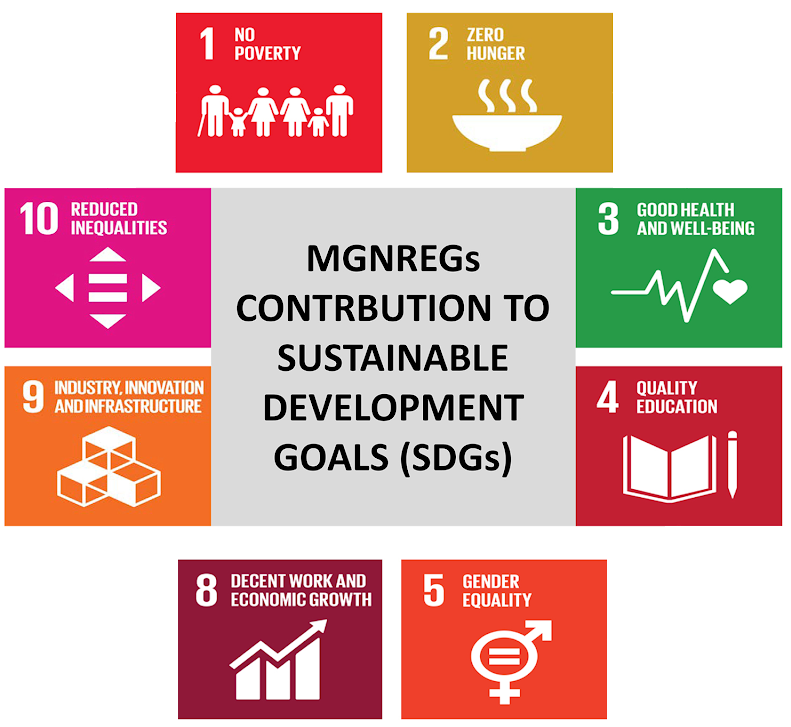MGNREGS Praised By the Standing Committee on Labour | 12 Feb 2021
Why in News
Recently, the Parliamentary Standing Committee on Labour in its report “Social Security and Welfare Measures for Inter-State Migrant Workers” praised Mahatma Gandhi National Rural Employment Guarantee Scheme (MGNREGS) for providing sustainable livelihood to the unskilled workers including the inter-state migrant labourers.
Key Points
- Standing Committees Observation:
- MGNREGS:
- The Mahatma Gandhi National Rural Employment Guarantee Act, 2005 provides for a specific and significant welfare provision, constitutive of the very idea of citizenship.
- There is no “better scheme” to provide “sustainable livelihood” to unskilled workers.
- Over 7 crore households (10.43 crore individuals) have already availed of the scheme and 330 crore person days have been created till February 2021 during the current financial year. This is the highest for any year since inception of the scheme in 2006.
- Migrant Workers:
- 1.08 crore migrant workers returned to their home states during the pandemic.
- The absence of reliable and authentic data/information on the numbers of migrant workforce and their movement back to their home States following the outbreak of the Pandemic has apparently impacted the relief and rehabilitation measures.
- There were a number of appreciable initiatives launched by the Government (eg: Pradhan Mantri Garib Kalyan Yojana), which are aimed at benefiting the Migrant Labour.
- However, no guidelines were issued nor enforced for distribution of relief material to stranded Migrant Labourers.
- No element of Social Audit prescribed.
- MGNREGS:
- Standing Committees Suggestions:
- Instant and Immediate Relief:
- Covid-19 Pandemic and the resultant challenges and lacunae observed in the system must be addressed so as to strengthen the preparedness to effectively deal with any such emergent situations.
- Credible Database to be Prepared:
- Credible databases of unorganized workers especially that of migrant labourers be put in place to ensure seamless delivery of relief packages to them at the time of distress.
- Earlier in december 2020, the Government has decided to create a database of migrant workers, including workers in the informal economy.
- Credible databases of unorganized workers especially that of migrant labourers be put in place to ensure seamless delivery of relief packages to them at the time of distress.
- Instant and Immediate Relief:
Mahatma Gandhi National Rural Employment Guarantee Scheme (MGNREGS)
- About: It is one of the largest work guarantee programmes in the world.
- Launch:
- It was launched on 2nd February 2006
- The Mahatma Gandhi National Rural Employment Guarantee Act was passed on 23rd August 2005.
- Objective:
- The primary objective of the scheme is to guarantee 100 days of employment in every financial year to adult members of any rural household willing to do public work-related unskilled manual work.
- Legal Right to Work:
- Unlike earlier employment guarantee schemes, the act aims at addressing the causes of chronic poverty through a rights-based framework.
- At least one-third of beneficiaries have to be women.
- Wages must be paid according to the statutory minimum wages specified for agricultural labourers in the state under the Minimum Wages Act, 1948.
- Demand-Driven Scheme:
- The most important part of MGNREGA’s design is its legally-backed guarantee for any rural adult to get work within 15 days of demanding it, failing which an ‘unemployment allowance’ must be given.
- This demand-driven scheme enables the self-selection of workers.
- Decentralised planning:
- There is an emphasis on strengthening the process of decentralisation by giving a significant role in Panchayati Raj Institutions (PRIs) in planning and implementing these works.
- The act mandates Gram sabhas to recommend the works that are to be undertaken and at least 50% of the works must be executed by them.
Way Forward
- The pandemic has demonstrated the importance of decentralised governance.
- Gram panchayats need to be provided with adequate resources, powers, and responsibilities to sanction works, provide work on demand, and authorise wage payments to ensure there are no delays in payments.
- Social Auditing creates accountability of performance, especially towards immediate stakeholders. Hence, there is a need to to create awareness regarding government policies and measures in rural areas.

